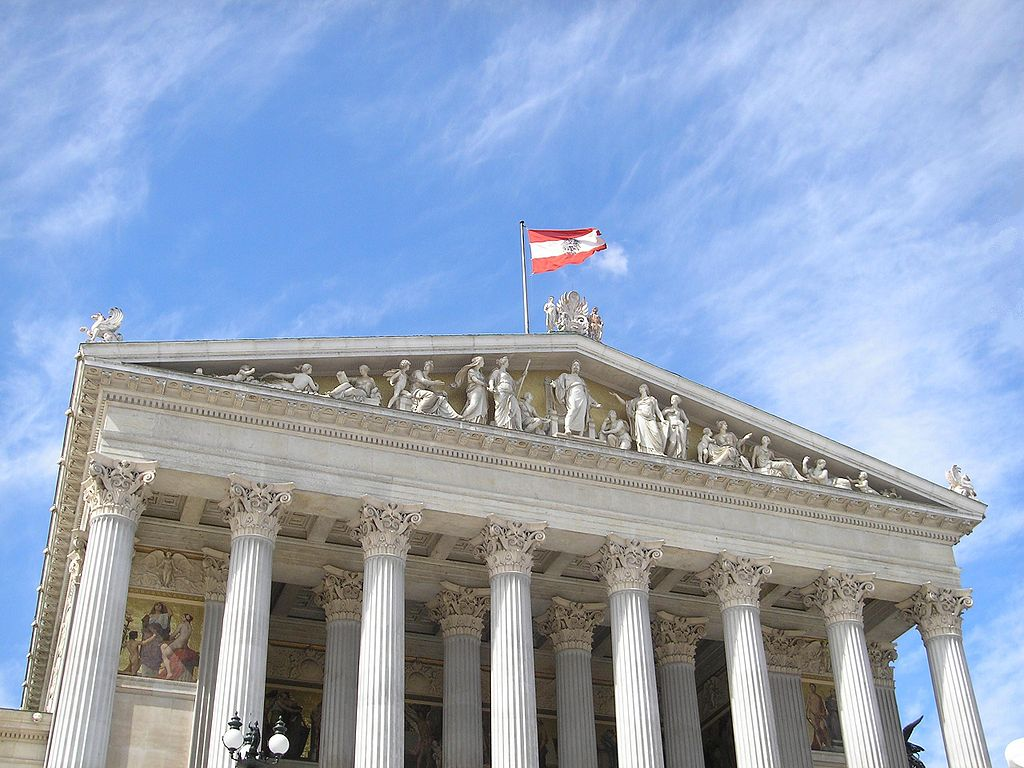

Austria’s conservative People’s Party (ÖVP) has announced a coalition government with the center-left Social Democrats (SPÖ) and the liberal Neos party, marking the end of a five-month political deadlock. The agreement, unveiled on Thursday, excludes the far-right Freedom Party (FPÖ), despite its victory in last September’s election. The coalition deal, which still requires approval from Neos party members, is expected to bring stability after Austria’s longest post-war government formation process.
Under the agreement, ÖVP leader Christian Stocker will become chancellor, with SPÖ’s Andreas Babler serving as vice chancellor. The coalition follows the failure of FPÖ leader Herbert Kickl to form a government due to policy disagreements with the ÖVP. Austrian President Alexander Van der Bellen had urged mainstream parties to find common ground amid growing economic concerns
A Coalition of Compromise Amid Economic Concerns
The agreement comes after Austrian President Alexander Van der Bellen urged mainstream parties to find common ground as economic challenges mounted. The coalition’s policy program includes tax increases on banks and energy companies, spending cuts, and stricter immigration controls.
The three parties had previously attempted to form a coalition but failed, leading to an unsuccessful attempt by the FPÖ to negotiate a government. FPÖ leader Herbert Kickl criticized the new coalition as a "coalition of losers" and called for a snap election, which polls suggest could further boost his party’s support beyond the 28.8% it secured in September.
The new government, Austria’s first three-party coalition since the 1940s, is expected to take office on Monday, pending approval from Neos members, who require a two-thirds majority to ratify the deal.
Austria’s newly formed coalition has signaled a notable shift in its approach to migration, moving away from the hard-line agenda previously championed by the far-right Freedom Party of Austria (FPÖ). The FPÖ had advocated for drastic reductions in asylum applications and the expansion of border controls. In contrast, the new administration plans to maintain stringent deportation procedures while prioritizing the expansion of integration programs for migrants.
On the international front, the coalition has reiterated Austria’s steadfast support for Ukraine amid its ongoing conflict with Russia. The government has endorsed European Union-wide sanctions against Moscow and committed to providing financial and logistical assistance for Ukraine’s reconstruction efforts. This alignment with EU policy underscores Austria’s continued commitment to European solidarity in the face of geopolitical challenges.
Domestically, the coalition faces mounting pressure to deliver tangible results and avoid the internal discord that has plagued previous administrations. As Austria embarks on this unprecedented political experiment, all eyes will be on the government’s ability to navigate pressing economic issues and foster stability in an increasingly polarized political environment. The success or failure of this coalition could have far-reaching implications for the country’s future.